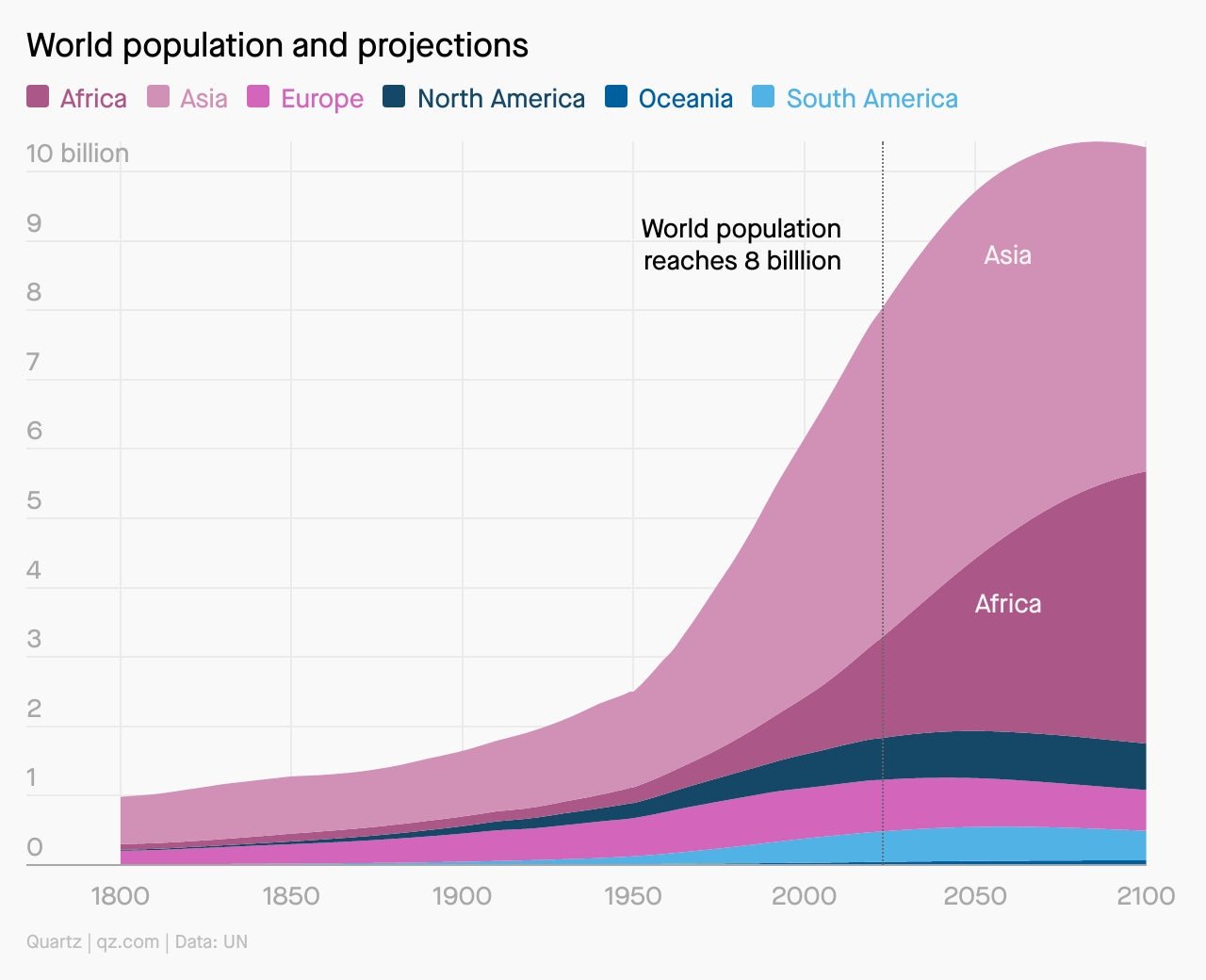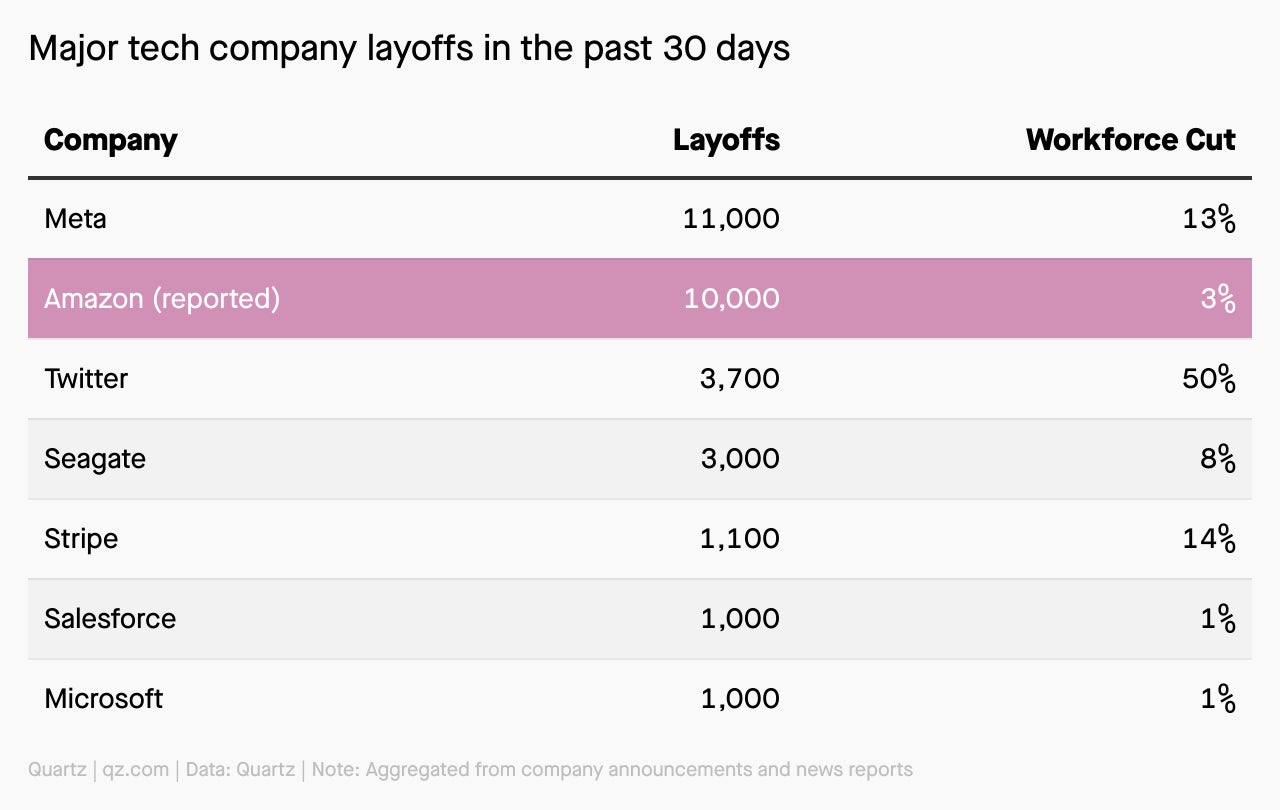🌍 NATO allies on edge
Plus: Welcome to the world, human No. 8 billion


Good morning, Quartz readers!
Here’s what you need to know
Missiles may have struck Poland and killed two near its border with Ukraine. Polish national security officials held an emergency meeting and NATO allies are investigating the source of the blasts. Meanwhile, Russia launched a fresh round of attacks on Ukraine causing blackouts in several cities and neighboring Moldova.
Warren Buffett’s company bought a $4 billion stake in chipmaker TSMC. Berkshire Hathaway’s backing of the Taiwanese chip giant is another sign the once tech-averse billionaire investor is changing his tune.
The G20 summit kicked off. World leaders convened in Bali, Indonesia for a two-day meeting likely to focus on Ukraine and global economic recovery, while also providing an opportunity for diplomatic resets.
JD.com’s fintech arm expects approval on its IPO before 2023. The Chinese e-commerce platform could soon get a greenlight from Beijing to list on the Hong Kong stock exchange, Reuters reports.
FTX could have over 1 million creditors. The crypto platform’s founder Sam Bankman-Fried is reportedly still looking for cash to cover $8 billion in withdrawal requests, even after the company filed for bankruptcy last Friday.
What to watch for
Three, two, one… blast off? Your guess is as good as ours if the NASA moon launch will actually happen today at 1:04am EST (depending on when you open this email, we might be on our way to the Moon or back to the drawing board!) But at the time of writing, all signs point to the stars.
It’s been a long time coming for the mega moon rocket that could, having traversed a lengthy development, engine sensor problems, and two hurricanes. The uncrewed test flight has a lot to prove—mainly that the Space Launch System rocket and the Orion space capsule can safely carry future astronauts to the Moon. Will the investment pay off?
$93 billion: Amount spent on the Artemis 1 program
Welcome to the world, human No. 8 billion!
Yesterday, the world’s population crossed the 8 billion threshold. Before you get too pessimistic with your population crisis theories, know that there’s a lot behind that number. For one, the rate at which the population is growing is actually slowing, and average fertility rates are declining. Plus public health improvements are helping people live longer.
But if there are reasons for concern, they lie in whether some regions will have the capacity to support fast-growing populations. Africa will drive half of the world’s population growth through 2062, putting many countries in a giant dilemma: balancing the fallout from catastrophic climate events while still growing economies to support a demographic dividend.

Tis the season for tech layoffs
One big number: 33,000, the number of people major US tech companies have laid off in the past month. Here’s a breakdown of some recent workforce cuts in Silicon Valley.

And that’s only part of the list. See how Peloton, Coinbase, and others stacked up.
✦ Love roundups like these that help you visualize a trend? Support our journalism and help keep our content accessible to all by signing up for a Quartz membership. Take 50% off, on us.
Surprising discoveries
Steve Jobs’ used sandals were sold at the price of a Ferrari. The 1970s pair of Birkenstocks went for over $218,000 at auction.
Even rats get groovy to Lady Gaga. Rodents are most responsive to music that has 120-140 beats per minute, just like humans.
A censored Italian baroque painting will be tastefully disrobed. Artemisia Gentileschi’s 1616 piece, The Allegory of Inclination, will be freed from another artist’s prudish drapery.
The Milky Way is more chocolate-y than we thought. Neutron stars have a structure akin to something like a Ferrero Rocher praline.
The oldest piece of text in the Basque language has been found. So far one word has been decoded from a 2,100-year-old bronze plate: sorioneku, or “good omen.”
Our best wishes for a productive day. Send any news, comments, videos of rats dancing, and chocolate stars to [email protected]. Reader support makes Quartz available to all—become a member. Today’s Daily Brief was brought to you by Julia Malleck and Morgan Haefner.